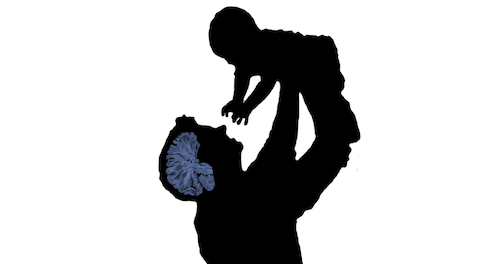Fathers’ brains adjust their structure and function to parenthood María Paternina-Die, CC BY-NDThe time fathers devote to child care every week has tripled over the past 50 years in the United States. The increase in fathers’ involvement in child rearing is even steeper in countries that have expanded paid paternity leave or created incentives for fathers to take leave, such as Germany, Spain, Sweden and Iceland. And a growing body of research finds that children with engaged fathers do better on a range of outcomes, including physical health and cognitive performance.
Despite dads’ rising participation in child care and their importance in the lives of their kids, there is surprisingly little research about how fatherhood affects men. Even fewer studies focus on the brain and biological changes that might support fathering.
It is no surprise that the transition to parenthood can be transformative for anyone with a new baby. For
